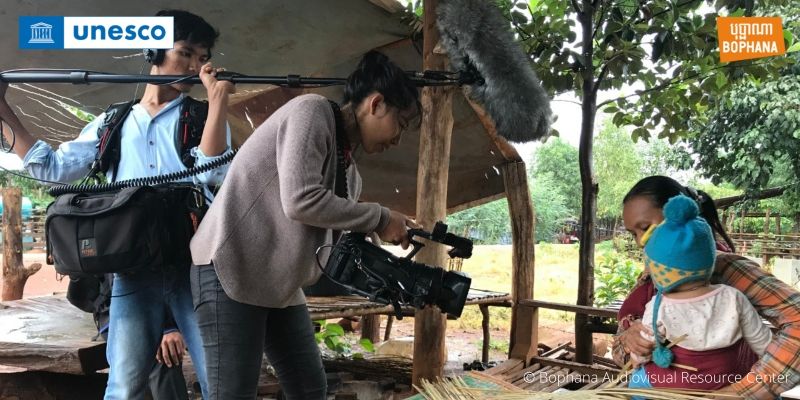Assessment for Learning – bringing the attention back to learning
Many schools and education systems still place significant priority on measuring learning outcomes with scores, grades and marks. But this focus and emphasis often misses a bigger picture, and doesn’t take into account the process of learning. Assessment for Learning (i.e. formative, classroom, school-based assessments) focuses on information and feedback for the students to help progress and reach their learning goals, rather than evaluating student achievement. In addition, it allows teachers to use this information to improve the quality and effectiveness of their teaching. According to Stewart Monckton, Research Fellow at the Australian Council of Educational Research (ACER), ‘the key aspect of AfL is that it places meaningful and timely assessment and feedback at the heart of everyday classroom teaching.’ Doug McCurry, Senior Research Fellow at ACER concurs, ‘I know of no other approach to teaching and learning that offers such potential improvements in learning.’
The Network on Education Quality Monitoring in Asia-Pacific (NEQMAP) recently held a regional capacity development workshop from 24-27 June on ‘Assessment for Learning’ for over 50 participants from 14 countries across the Asia-Pacific. The network brought together education stakeholders from Ministries, research institutes, private and non-governmental organizations, to not only build capacity in the area of formative assessments, but to also ensure that education systems align curriculum, teaching and assessment efforts to ensure quality learning outcomes. The workshop was hosted by NEQMAP member institute, Southeast Asia Ministers of Education Organization (SEAMEO) Centre for Quality Improvement of Teachers and Education Personnel (QITEP) in Science in Bandung, Indonesia, and facilitated by experts from the Australian Council for Educational Research (ACER).
Topics and practical activities included the different interpretations of classroom, school-based and formative assessments, the alignment of curriculum and formative assessments, teacher assessment literacy, learning progressions and rubrics, reporting and providing student feedback, and higher order thinking skills and 21st century skills. Participants shared how they are currently using formative assessments and how they will use the information learned at the workshop when they return home.
Several of the participants highlighted some of their lessons learnt from the workshop. ‘What I have learned was that students should be more responsible for their own learning’ said Mary Kambu Phillips from the Department of Education, Papua New Guinea. ‘And some of these concepts we looked at were unfamiliar or new to me which means that most of our classroom teachers would not be familiar with them either.’
Geewanath Sharma from Bhutan’s Royal Education Council noted, ‘assessment for learning is a process that provides feedback whereby both teachers and students know where they are in their teaching or in their learning, where they need to go, and how to get there. As a result, curriculum, teaching and assessment must be aligned to provide appropriate feedback on the progress of the student.’
The best part of this type of assessment is that ‘assessment for learning respects all learning types and levels. It is holistic and addresses differentiation in learning where teaching strategies and methods are applied to address all types of learners,’ said Micheal Uvisa Mera, from the Department of Education, Papua New Guineau.
Why is formative assessment and Assessment for Learning a challenge?
While the topics at the workshop were easily absorbed by the participants, many challenges remain at the local and national levels in providing effective Assessment for Learning. Many participants indicated that despite the best efforts of teachers and schools, a ‘culture of testing’ still pervades in a majority of countries. This often means that the priorities of end of year/term exams and high-stakes testing take precedent – particularly in the minds of parents, students and higher authorities who want to see progress in learning captured by overall scores, and not individual feedback.
Another difficult challenge for many countries is class size – it is not easy to provide effective feedback and individualized learning progressions when teachers must deal with a classroom of 50 or more students. In this manner, teachers often resort to ‘crowd control’ and an over-reliance on the textbooks to deliver lessons, rather than being able to set appropriate lessons that could stimulate and engage learners.
These challenges are not insurmountable, and workshops like the recent NEQMAP workshop can provide educators with the necessary vision and information to take the steps necessary at the local and national levels.
The way forward - What can national actors do?
Many highlighted the need to change or shift perceptions, raise awareness of the benefits for AfL, and provide more support for schools/teachers to implement effective formative assessments. What is needed is to recognize ‘the importance of formative assessment as total assessment. We have to inform stakeholders and have a shift in the way assessment is being thought of,’ added Mary Kambu Phillips. This goes not only for educators, but for parents, students, communities, and all education stakeholders.
And in Bhutan, Geewanath Sharma noted ‘Assessment for learning will be the main idea that will be incorporated while designing the assessment and reporting modality for classes in Pre Primary to Year 6, with no mid term or year end examinations’.
Responding to many of the participants concerns and questions on how to reconcile the AfL agenda and concepts with those who are only interested in tests, grades and marks, Doug McCurry from ACER responded, ‘AfL and AaL can, in my view, be used to produce superior examination performance. Clarification of goals and criteria, deconstruction of the examination, metacognition, self and peer assessment, and feedback to teachers and for students will improve examination performance. What other approach is potentially more powerful?’
‘Small steps and small changes can lead to (surprisingly) big changes – even if that involves just a move away from teacher talk that says “yes, that’s a good answer’, but ends there – to “yes, that’s a good answer, because you (did this or did that)…. We, as teachers, need to know what our students know at the time they are leaning, and students need to know what they know as they are progressing, not at the end of journey’ reiterated Stewart Monckton.
With an emphasis on clear learning objectives, relevant and effective feedback and reporting, and self-awareness, students can become the owners of their learning, giving them more agency. Education stakeholders can help our learners by providing the appropriate environment and structure that nurtures feedback and guidance, and embraces Assessment for Learning.
Written by Mark Manns
For more information on NEQMAP and its activities, please contact the NEQMAP Secretariat: neqmap@unesco.org








